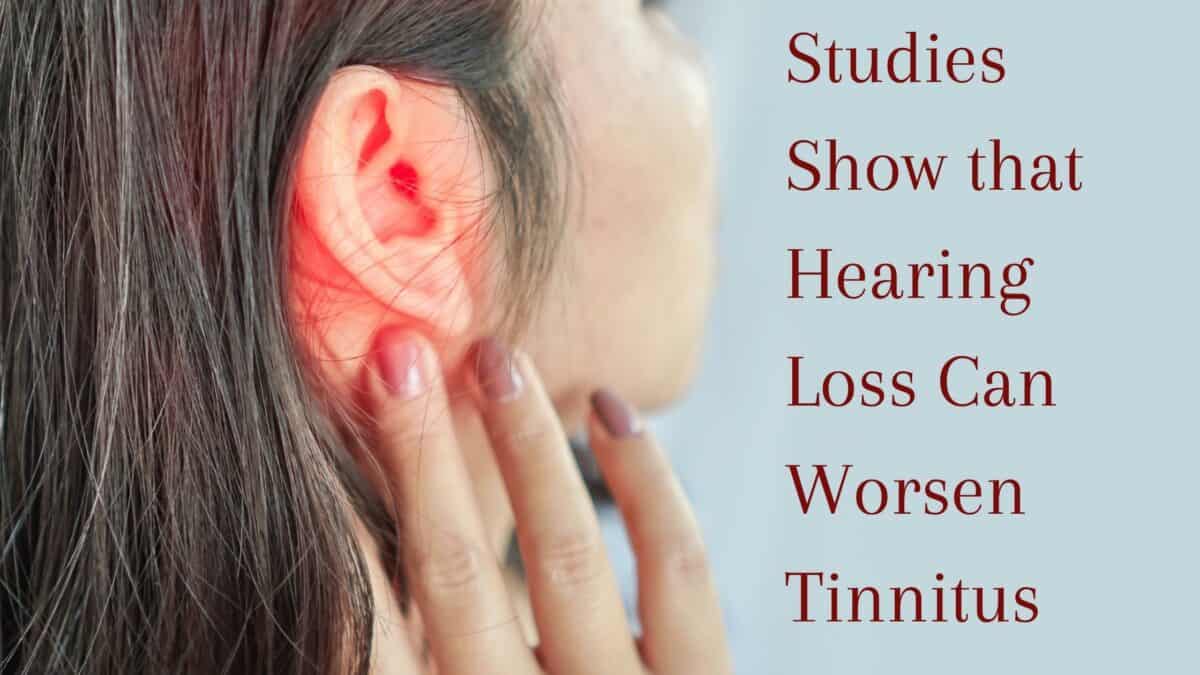One of life’s greatest gifts is finding a little peace and quiet amongst the busy clamor. If you have tinnitus, though, those moments of quiet become harder to find. Tinnitus is a hearing condition classified by symptoms of hearing sound when no external noise is present. It can show up as a persistent ringing or buzzing. Tinnitus sometimes accompanies hearing loss, but not as a rule.
We already know that treating hearing loss can successfully impact a person’s experience of tinnitus. Now, researchers understand more about that link as new studies show that the coexistence of hearing loss and tinnitus can make the symptoms of tinnitus more severe.
Prevalence of tinnitus
For a condition that affects 32% of the American population, tinnitus doesn’t often get the attention it warrants. Our risk of tinnitus grows as we age, and people between 60 and 69 years of age are the demographic most likely to be diagnosed with it. This is because incidences of tinnitus climb as rates of hearing loss do, which is more common in older people.
Drawing attention to the condition and its common occurrence is important for people who suffer from tinnitus. It can be an aggravating experience, the constant ringing or buzzing, and people with tinnitus are likely to report feelings of anxiety, difficulty concentrating, irritability, and depression. Knowing that other people are going through these experiences can make us feel less alone. Famous cases include rockers Huey Lewis whose music career was cut short due to tinnitus and Coldplay’s Chris Martin. Martin believes he developed tinnitus as a result of listening to music much too loudly in his teens. He has been public with his condition in the hopes that his experience will serve as a helpful lesson to today’s teenagers.
Recent findings
While we’ve long associated tinnitus and hearing loss, a recent study elucidates long-asked questions about their relationship. In this study, consisting of tinnitus patients with and without hearing loss, participants had their tinnitus condition evaluated using the Tinnitus Functional Index questionnaire.
The severity of tinnitus was compared to the group of patients with hearing loss versus those who did not have hearing loss. Even after adjusting for age and other factors, researchers found that there was a significant link between hearing loss and the intensity of a person’s tinnitus.
Treating hearing loss can help
There is a bright spot to these findings, which is that treating the underlying cause of tinnitus can reduce its effects. If you have hearing loss and a severe case of tinnitus, there is a good chance that treating your condition of hearing loss will successfully reduce your experience of tinnitus.
Try using hearing aids
Hearing aids have been a proven successful intervention in hearing loss for many years. Today’s hearing aids are even more powerful than ever before and can truly enhance your listening experience. They remain an underutilized treatment — less than a third of seniors who could benefit from hearing aids have ever tried them.
Some hearing aids can specifically treat tinnitus. By increasing background noise, and providing more sound information to your brain, the experience of tinnitus’s constant ringing, buzzing, or roaring fades from the forefront. Some feature a program to provide white noise or ocean sounds, which bring relief to people with tinnitus.
Dealing with tinnitus
While tinnitus is ultimately a permanent condition, many people have found successful management of tinnitus conditions through mindfulness practices, like meditation. Meditation does not erase the presence of tinnitus, but it does help people with the condition to develop better tools in living with persistent and annoying sounds.
To try this yourself, spend some time googling meditation or mindfulness techniques. There are many different methods out there, including handy apps right on your phone that guide you through meditations if silent meditation proves too unbearable.
Schedule a hearing consultation today
Schedule a hearing exam today to see if hearing loss is contributing to your experience of tinnitus. Our team of hearing health professionals can lead you through a quick and easy hearing test and walk you through the next steps of treatment. With time and attention, you can begin to enjoy your best hearing possible.

